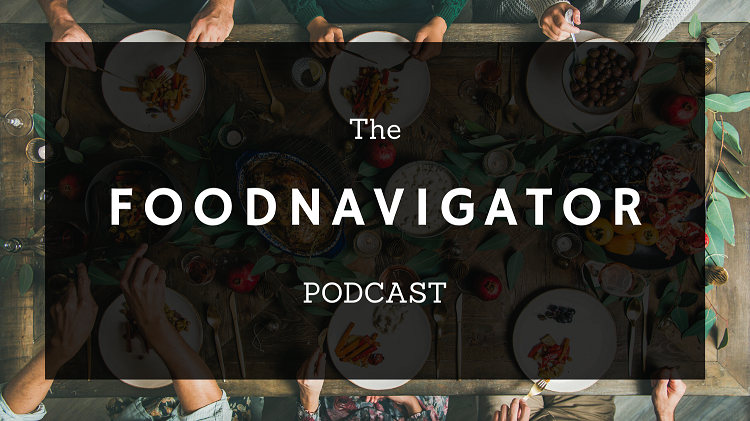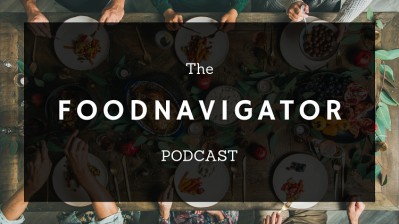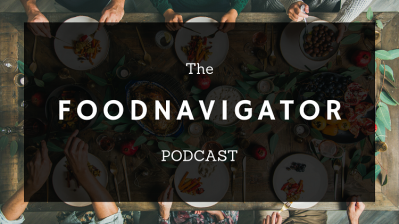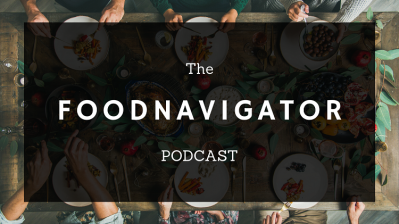The FoodNavigator Podcast: Mood food for mental wellbeing – how can the industry capitalise?

Consumers have always turned to food during uncertain times. But when we once turned to indulgent, nostalgic foods as a coping mechanism, there’s a trend among consumers today to seek out more natural, healthier solutions and trend watchers are noticing more food brands looking to innovate with botanicals, adaptogens and similar ingredients as more consumers take an interest in their mental wellbeing.
"What we're now seeing is that consumers are re-evaluating that. Instead they are turning to products with functional ingredients that are healthy that can help aid relaxation," said Mike Hughes, head of Research and Insights at FMCG Gurus.
We’re also seeing changing attitudes to mental health – with the stigma once attached to it disappearing. It’s expected this fact will continue to fuel demand for food and beverage solutions for mood and mental wellbeing.
EY Global Consumer Senior Analyst Jon Copestake added there's scope for food companies to widen their offerings to appeal to customers seeking foods to improve their mood.
"We're seeing a lot more foods for allergies and gluten free but we're still seeing largely dietary foods focussed on calories we're not seeing particularly a huge amount of products that focus specifically on mental wellbeing,” he said. “What we're still seeing on supermarket shelves isn't substantively changing."
Why the lines between supplements and food are blurring
More ingredients companies are noticing the trend however and attempting to move from targeting the supplement industry to food formulators.
Spain-based Nektium for example has expanded its botanical ingredient portfolio into the food and beverage sector for the first time. The move means that its clinically researched, branded plant extracts are now available for use in a wide range of applications beyond supplements, including sports and energy drinks, dairy products, gummies, and cereal bars. Its portfolio includes the adaptogen Rhodiolife. This is extracted from the rhodiola plant, which grows in the cold Arctic regions of Europe, Asia, and North America, and which has been shown to help improve cognitive health such as improving anxiety and depression.
Marketing Manager Deborah Thoma told us: "Traditionally there was a clear line between the supplement industry and the food and beverage industry. People want that supplementation of their diet but are not so eager on taking pills anymore."
Another company promoting a natural ingredient is Israeli biotech company Algatechnologies. It specialises in the commercial cultivation of microalgae. Microalgae is a rich source of astaxanthin, a red pigment, rich in antioxidants and which also causes the pink red colour in salmon.
From one type of micro-algae the company extracts the astaxanthin to make a powder product called AstaPure. And like Rhodiolife, AstaPure claims to have cognitive benefits such as improving stress. The company too hopes to target food and beverage formulators.
Away from specialist ingredients, is their evidence that people are turning to specialist diets – the super trendy keto, paleo and flexitarian for example – to help their mental wellbeing?
There is fascinating evidence emerging that the keto diet, for example, may help treat serious mental health disorders. A new clinical trial by James Cook University in Australia is investigating how the diet can affect conditions including bipolar disorder.
Keto is the worlds most Googled food related word, in 2019 and 2020 at least, and most people choose it to lose weight. But there’s growing interest in its potential mental health benefits, said Andy Welch, who founded Seriously Low Carb in 2019.
“Typically, today’s western diets lack a lot of the nutrients required to feed the body and look after our precious organs – especially our brain. Introduce a keto diet, or a Low Carb Lifestyle (as I like to call it) and you essentially ditch many of the highly processed carbs and sugars that dominate Western lives,” he said. “An appreciation of healthy foods like leafy greens and the essential nutrients they offer such as superior brain health sits at the heart of keto thinking, namely how to help your body operate at the peak of its powers.”


























